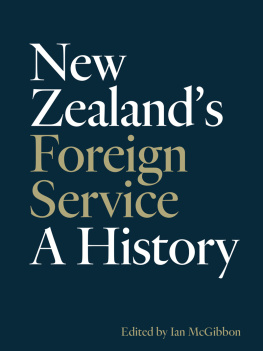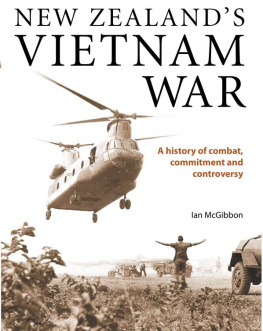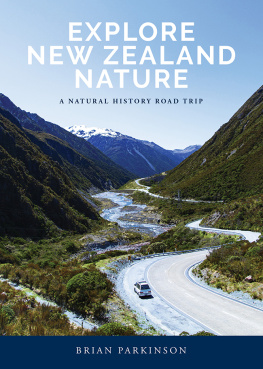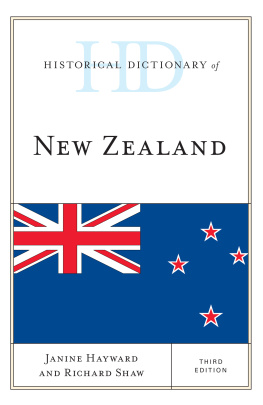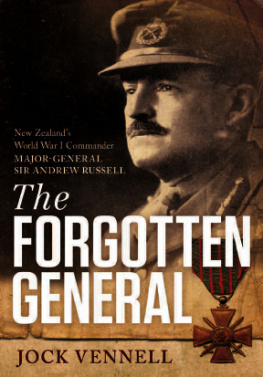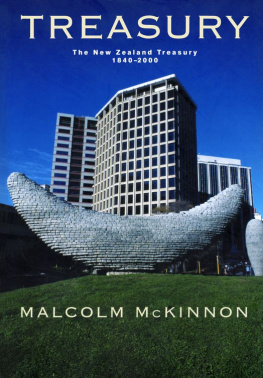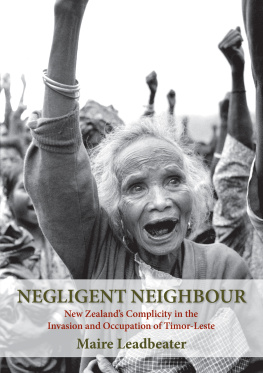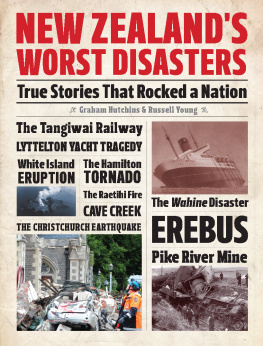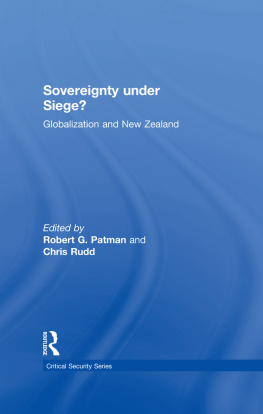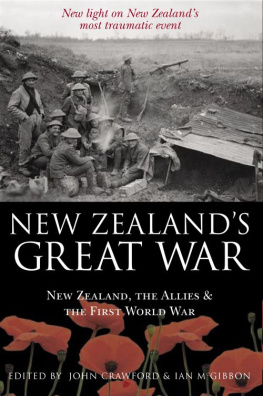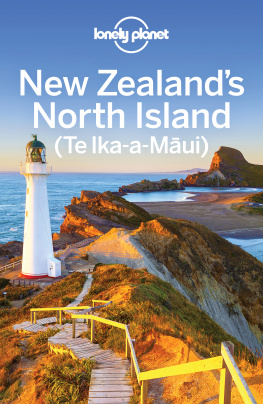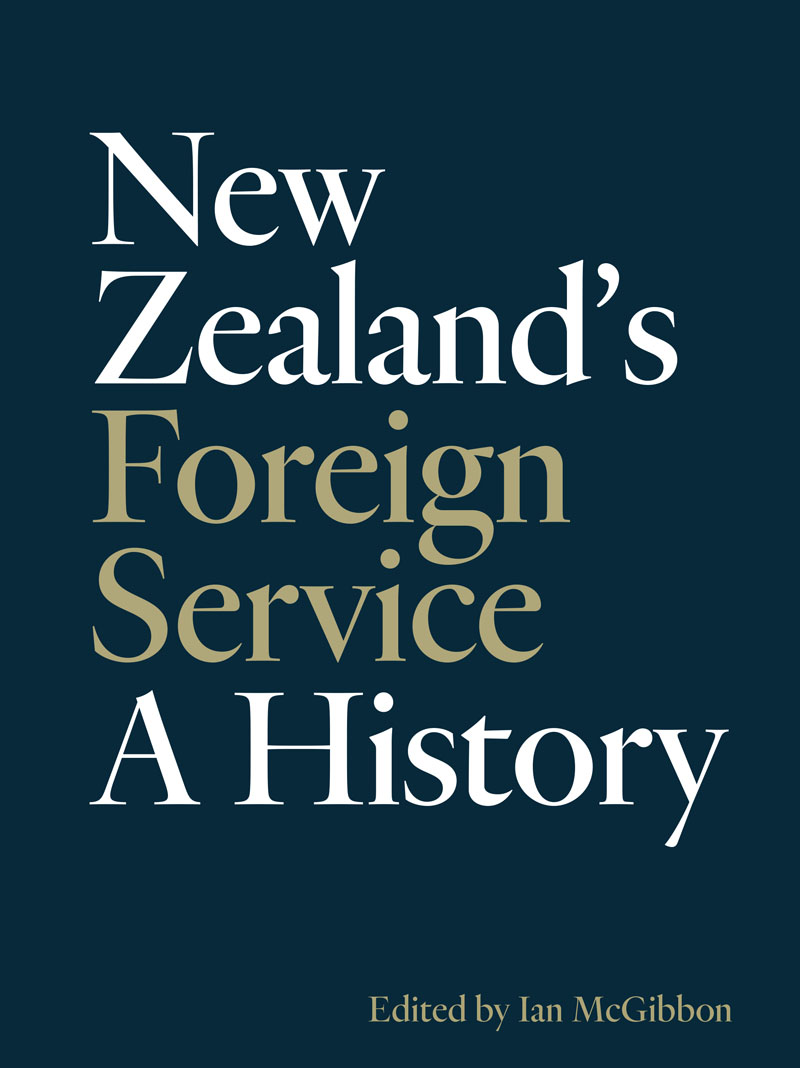

Contents
Editors note
This work has been commissioned and funded by Manat Aorere Ministry of Foreign Affairs and Trade (MFAT) but has been managed independently by Manat Taonga Ministry for Culture and Heritage with the advice and support of an independent Governance Group and Editorial Committee. It contains the commissioning editor and authors own interpretations and judgments, based on their research and expertise; as such, it does not follow any official or government line. The opinions, interpretations and judgments in this text are those of the authors and do not represent the views of MFAT or the New Zealand government.
Preface
D iplomacy is surely one of the most important professions. On the efforts of diplomats may rest the fate of nations. In an international system dominated by nation states, their ability to perceive and interpret developments, to advise appropriate courses of action and to negotiate solutions to often complex problems can be crucial to a countrys security. A breakdown of diplomacy may lead to disaster and loss of life. But the diplomatic sphere extends far beyond questions of war and peace. A states economic survival may also depend on the efforts of its diplomats. On their ability to secure the conditions necessary for the interchange of goods and services may rest the prosperity of millions. Their efforts to secure global responses to transnational challenges such as climate change or pandemics may be crucial to the future safety of everybody on the planet.
At the great power level, diplomacy is inevitably closely intertwined with military strength. Maintaining the delicate balance of power in this arena depends, in large part, on a combination of good intelligence and effective dialogue with potential adversaries. Allaying fears, overcoming misunderstandings, reducing tensions diplomats smooth the path of international interaction among the powerful. But most states are not great powers. Especially for small states, diplomacy is not tethered to military power. Their success or failure depends on adjusting to the international conditions created by the great powers, and making their way in a world in which they have little scope to effect major change. Although reactive, diplomacy for such states can be just as crucial in ensuring security, both physical and economic, as it is for the worlds behemoth states. All states, big and small, must today contend with issues that transcend inter-state security that did not exist in such demanding form in earlier times. Influencing great powers in such circumstances is a challenge that demands great skill. Multilateral settings can provide a diplomatic opportunity for smaller states, as can the pursuit of aspirational goals.
The importance of diplomacy leaves all states, large and small, with a strong interest in identifying people who can deal effectively with those of other states, often from very different cultures. In this search for the best and brightest, qualities such as intelligence, flexibility, tact, ability to articulate, determination, linguistic skill and persistence are at a premium. No less than an armed service, a diplomatic service enables a state to pursue or defend its interests. It also provides a key marker of independence.
How New Zealand entered the diplomatic arena and built up a ministry capable of holding its own in the counsels of the world is a compelling story. But it is one that has been told only in part, the focus having usually been on the early years of the Department of External Affairs. The ministry has lagged behind in producing a history of its development and achievements. Other government departments have received substantial historical assessments, not least in Alan Hendersons history of the State Services Commission, Malcolm McKinnons of Treasury, John Martins of the Labour Department, Michael Bassetts of the Department of Internal Affairs, and Richard Hill, Graeme Dunstall and Susan Butterworths of the Police. At the time of the commemoration of MFATs seventy-fifth anniversary in November 2018, the need to fill the gap by producing a history of the ministry was recognised. This book is the result. Unlike most of the works cited above, it is a collaborative effort, involving six highly qualified authors. I looked after the period up to 1966 the McIntosh era and the Introduction and Conclusion, and also contributed a chapter on diversity to both , as well as the captions, appendices and bibliography. Most of the second part, 196789, was in the capable hands of Dr Diana Morrow, Dr Steven Loveridge and PhD candidate Hamish McDougall. Dr Joanna Spratt and Dr Anita Perkins completed most of the third part, 1990 to the present.
Although commissioned by the Ministry of Foreign Affairs and Trade, this book has been produced under the auspices and editorial control of the Ministry for Culture and Heritage. A Governance Committee oversaw the project. Chaired by former chief executive Simon Murdoch, it comprised Professor Gary Hawke, Dr Malcolm McKinnon, Chris Elder, Dr John McArthur, Dell Higgie (replaced by Rosemary Paterson in September 2020), Elizabeth Cox and Neill Atkinson. Authors were given free rein to prepare their chapters within an overall plan and were given access to ministry records.
An Editorial Committee comprising Chris Elder, Gary Hawke, John McArthur, Caroline McDonald, Malcolm McKinnon, Rosemary Paterson and Gerry Thompson read all the chapters. Their comments were extremely useful in ensuring an accurate portrayal of the ministrys activities. Thanks, too, to Adrienne Payton for proofreading and other support.
We are grateful to many people who assisted with research for this book. In particular, MFATs Charlotte McGillen was a tower of strength in identifying and providing access to documents and other material relevant to this study. The Ministry for Culture and Heritages librarian, Fran McGowan, was very helpful in securing books and articles. We are also indebted to the librarians and archivists at Alexander Turnbull Library, Archives New Zealand and repositories in the United Kingdom.
Simon Murdoch and John McArthur were unfailing in their support at all stages. Apart from the Editorial Committee, John Allen, Gerard van Bohemen, Belinda Clark, Deb Collins, Sarah Dennis, Roy Ferguson, Caroline Forsyth, Nigel Fyfe, Colin Keating, Derek Leask, Gerald McGhie, Simon Murdoch, Richard Nottage, David Payton, Georgina Roberts, Llewelyn Roberts, Neil Walter and Martin Wikaira read part or all of the manuscript and provided valuable insights, while Rita Ricketts enthusiastic support for the project was appreciated. None of them, of course, bears any responsibility for the text.
The Ministry for Culture and Heritage played a major role in bringing this project to fruition, in particular Neill Atkinson, the chief historian, senior historian Elizabeth Cox, editor David Green and picture researcher Gareth Phipps. Thanks, too, to Massey University Press for undertaking to publish the book. Finally, my wife Sonias forbearance during my absences, physical and mental, while working on this project must also be gratefully acknowledged.
Ian McGibbon
Commissioning Editor
Abbreviations
AGM | annual general meeting |
ANZUK | Australia, New Zealand, United Kingdom |
ANZUS | Australia New Zealand United States (alliance) |
Next page
